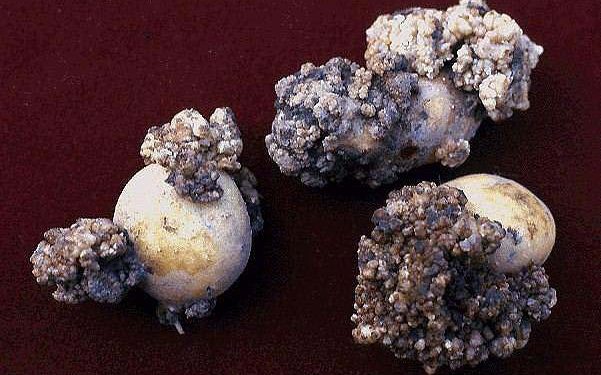The National Potato Council (NPC) of the United States remains vigilant as the threat of potato wart introduction to U.S. soils from potatoes originating in Prince Edward Island (PEI), Canada persists. Despite measures taken by Canada in November 2021 to halt exports to the U.S. upon detection of potato wart, concerns continue to mount within the U.S. potato industry.
Following the detection, exports of PEI table stock potatoes resumed in March 2022, albeit under specific conditions, with seed potatoes remaining prohibited. However, a report released in October 2022 by the USDA Animal and Plant Health Inspection Service (APHIS) highlighted the inherent risk and associated costs of importing PEI potatoes, signaling a lack of effective mitigation strategies.
Kam Quarles, CEO of the National Potato Council, expressed frustration over the perceived lack of urgency in addressing the issue, citing political pressures and a seeming disparity in standards between the U.S. and Canada. Despite efforts by the U.S. industry to combat similar issues in the past, such as the pale cyst nematode (PCN) infestation in Idaho, the reciprocity in standards has not been reciprocated by Canada.
Of particular concern is the reclassification of some of PEI’s fields from low risk to high risk by the Canadian Food Inspection Agency (CFIA) due to difficulties in containing the disease within PEI’s soils. The delay in implementing necessary changes to mitigate the spread of potato wart exacerbates the frustration for U.S. stakeholders, with significant economic implications at stake.
While there is currently no evidence of potato wart on U.S. soil, the lack of urgency in addressing the issue poses a significant risk to U.S. growers. NPC estimates potential losses of $225 million annually in exports to fresh potato markets, in addition to significant direct domestic costs and indirect industry impacts.
NPC continues to advocate for action from both USDA and CFIA, emphasizing the need for meaningful and responsible testing protocols and urging stakeholders to pressure decision-makers to address the issue promptly. The potential consequences of inaction are dire, with U.S. potato-growing regions facing substantial job losses and economic instability in the event of an outbreak.
As the U.S. industry grapples with the ongoing threat, the NPC underscores the urgency of addressing the issue to safeguard the interests of the U.S. potato industry. The need for collaborative efforts between the U.S. and Canada to effectively mitigate the risk posed by potato wart imports cannot be overstated, with the livelihoods of countless individuals depending on swift and decisive action.







